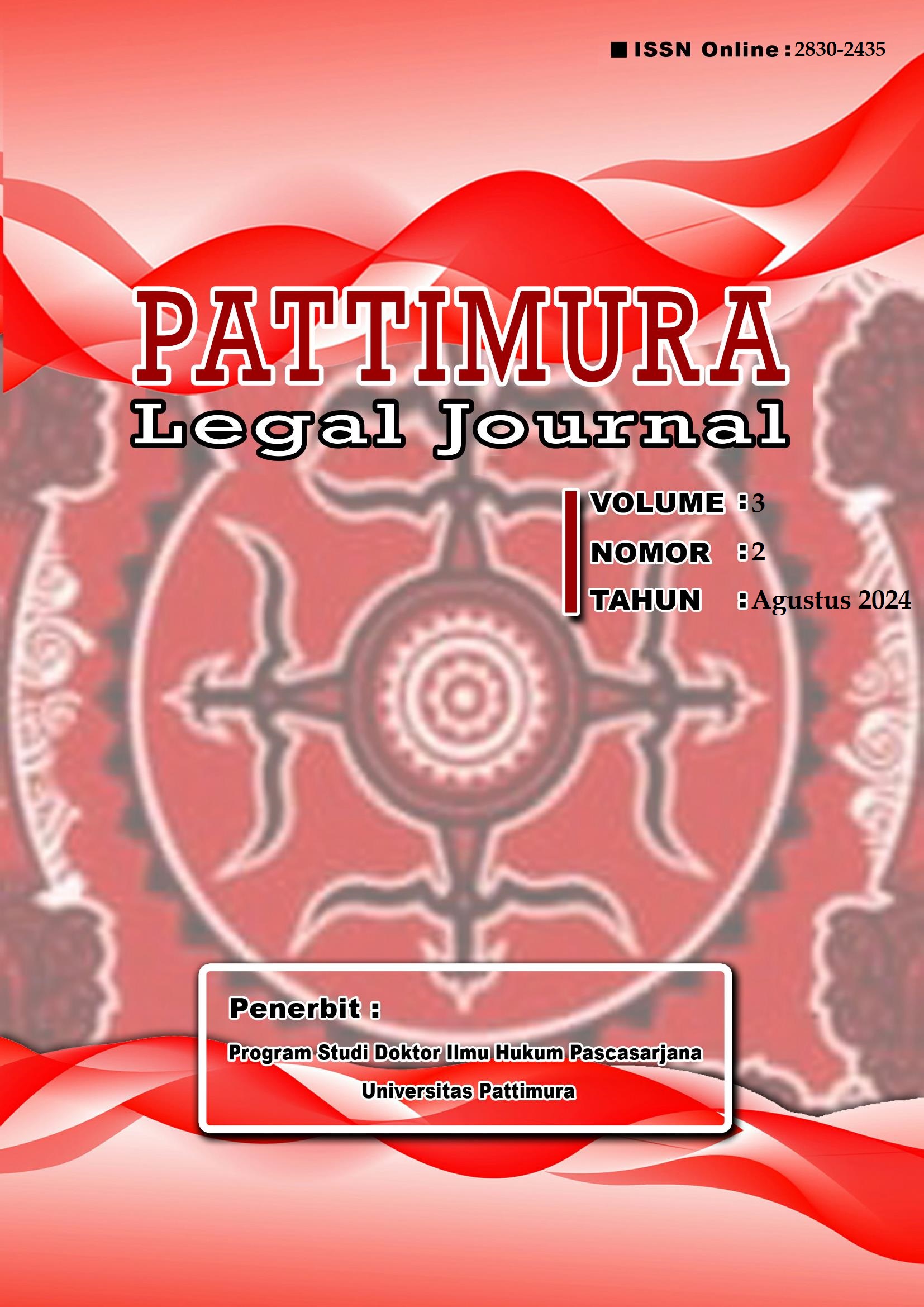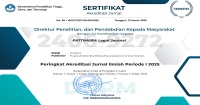Pelaksanaan Pemenuhan Hak Pekerja Pada Toko Ponsel
Abstract
Introduction: The implementation of the fulfillment of workers' rights in mobile phone shops in Dumai City is often not in line with applicable regulations such as the provision of inadequate wages, workers' working hours that are not in accordance with working hour regulations and the right to leave that workers rarely get.
Purposes of the Research: The purpose of this research is to find out how the fulfillment of workers' rights at cellphone stores in Dumai City, how obstacles and efforts in fulfilling workers' rights at cellphone stores in Dumai City.
Methods of the Research: The type of research used is sociological legal research that wants to see the correlation between law and society, so as to reveal the effectiveness of the application of law in society.
Results Originality of the Research: This research found that the only rights that have been implemented are the rights to get work breaks. Meanwhile, other rights have not been fulfilled. Constraints in the fulfillment of workers' rights are due to the absence of wage increases, working hours that exceed the time limit, unclear rights and obligations, and the lack of ability of employers to fulfill workers' rights, difficulty in obtaining work leave, absence of social security, absence of education and job training. Efforts can be made in the form of counseling and education, work scheduling so that schedules are more flexible, providing written agreements, applying appropriate wages, training and skills development, and social security.
Downloads
References
Jurnal
Adnyani, Desak Komang Sri, and I Wayan Gde Wiryawan. “Pelaksanaan Perlindungan Hukum Terhadap Pekerja Tanpa Perjanjian Kerja Tertulis Di PT. Sukamulia Mandiri Agung Cabang Bali.” Jurnal Hukum Mahasiswa 1, no. 1 (2021): 68–82. https://doi.org/10.36733/jhm.v1i1.2574.
Ayu, Putri Maharany. “Perlindungan Hukum Terhadap Tenaga Kerja Perempuan Di Bank Syariah Indonesia Kantor Cabang Pembantu Ahmad Yani Pekanbaru.” Jurnal Online Mahasiswa Fakultas Hukum Universitas Riau IX, no. 2 (2022): 2.
Bintoro, Rahadi Wasi, Riris Ardhanariswari, and Rahman Permana. “Implementasi UU No. 13 Tahun 2003 Tentang Ketenagakerjaan Bagi Tenaga Kerja Perempuan Di Kabupaten Purbalingga.” Jurnal Dinamika Hukum 8, no. 3 (2008): 213–40. https://doi.org/10.20884/1.jdh.2008.8.3.79.
Budijanto, Oki Wahju. “Upah Layak Bagi Pekerja/Buruh Dalam Perspektif Hukum Dan HAM.” Jurnal Penelitian Hukum De Jure 17, no. 3 (2017): 395–412.
Hetharie, Yosia, and Arter Lukas Tulia. “Pemenuhan Hak Pekerja Perempuan Dalam Peraturan Perusahaan.” Bacarita Law Journal 1, no. 1 (2020): 54–61. https://doi.org/10.30598/bacarita.v1i1.2791.
Nurwati. “Tinjauan Yuridis Undang-Undang Nomor 21 Tahun 2011 Tentang Serikat Pekerja.” Jurnal Ilmu Hukum 1, no. 2 (2006): 12.
S, Nurjannah. “Prinsip Anti Diskriminasi Dan Perlindungan Hak-Hak Maternal Pekerja Perempuan Dalam Perspektif Keadilan Gender.” Jurnal IUS: Kajian Hukum Dan Keadilan 1, no. 1 (2013): 32–43.
Susiana, Sali. “Perlindungan Hak Pekerja Perempuan Dalam Perspektif Feminisme.” Aspirasi: Jurnal Masalah-Masalah Sosial 8, no. 2 (2017): 207–21. https://doi.org/10.46807/aspirasi.v8i2.1266.
Zubi, Muhammad, Marzuki, and Ibnu Affan. “Tinjauan Yuridis Perlindungan Hak-Hak Normatif Tenaga Kerja Setelah Berlakunya Undang-Undang Cipta Kerja (Omnibus Law).” Jurnal Ilmiah Metadata 3, no. 3 (2021): 1171–95. https://ejournal.steitholabulilmi.ac.id/index.php/metadata/article/view/104.
Buku
Manulang, Sendjun H. Pokok-Pokok Hukum Ketenagakerjaan Di Indonesia. Jakarta: Rineka Cipta, 2008.
Rusli, Hardijan. Hukum Ketenagakerjaan Berdasarkan UU No.13/2003 Tentang Ketenagakerjaan Dan Peraturan Terkait Lainnya. Bogor: Ghalia Indonesia, 2011.
Soedarjadi. Hukum Ketenagakerjaan Di Indonesia. Yogyakarta: Yustisia, 2008.
Soekanto, Soerjono. Pengantar Penelitian Hukum. Jakarta: UI- Press, 2010.
Soepom, Imam. Hukum Perburuhan Bidang Kesehatan Kerja (Perlindungan Hukum). Jakarta: Pradnya Paramita, 1983.
Wijayanti, Asri. Hukum Ketenagakerjaan Pasca Reformasi. Jakarta: Sinar Grafika, 2009.
Copyright (c) 2024 Shabrina Rika Darma, Rika Lestari, Nurahim Rasudin (Author)

This work is licensed under a Creative Commons Attribution-NonCommercial 4.0 International License.
Authors who publish their manuscripts in this Journal agree to the following conditions:
- The copyright in each article belongs to the author, as well as the right to patent.
- Authors are able to enter into separate, additional contractual arrangements for the non-exclusive distribution of the journal's published version of the work (e.g., post it to an institutional repository or publish it in a book), with an acknowledgment of its initial publication in this journal.
- Authors are permitted and encouraged to post their work online (e.g., in institutional repositories or on their website) prior to and during the submission process, as it can lead to productive exchanges, as well as earlier and greater citation of published work.
- Authors have the right to self-archiving of the article (Author Self-Archiving Policy)






















